Filter by
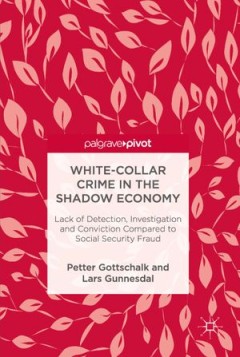
White-Collar Crime in The Shadow Economy: Lack of Detection, investigation an…
convenience theory; financial crime; risk; crime prevention; fraud; organised crime; police investigation; social security; Shadow Economy; detection; investigation; convictions; prosecution; tip of the iceberg; police resources; crime detection theory
- Edition
- -
- ISBN/ISSN
- 9783319752914
- Collation
- -
- Series Title
- -
- Call Number
- 364 GOT w

Punishing The Criminal Corpse, 1700-1840: Aggravated Forms of The Death Penal…
history of crime; medical humanities; capital punishment
- Edition
- -
- ISBN/ISSN
- 9781137513601
- Collation
- -
- Series Title
- -
- Call Number
- 364 KIN p

The Golden and Ghoulish Age of the Gibbet in Britain
history of crime; capital punishment; medical humanities
- Edition
- -
- ISBN/ISSN
- 9781137600882
- Collation
- -
- Series Title
- -
- Call Number
- 364 TAR g
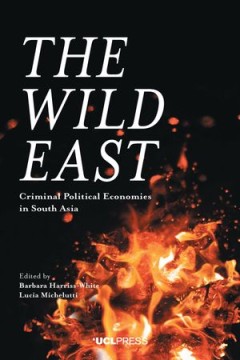
The Wild East
The Wild East bridges political economy and anthropology to examine a variety of il/legal economic sectors and businesses such as red sanders, coal, fire, oil, sand, air spectrum, land, water, real estate, procurement and industrial labour. The 11 case studies, based across India, Pakistan and Bangladesh, explore how state regulative law is often ignored and/or selectively manipulated. The emer…
- Edition
- -
- ISBN/ISSN
- 9781787353237
- Collation
- -
- Series Title
- -
- Call Number
- -
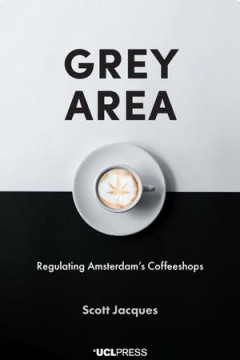
Grey Area
Coffeeshops are the most famous example of Dutch tolerance. But in fact, these cannabis distributors are highly regulated. Coffeeshops are permitted to break the law, but not the rules. On the premises, there cannot be minors, hard drugs or more than 500 grams. Nor can a coffeeshop advertise, cause nuisance or sell over five grams to a person in a day. These rules are enforced by surprise polic…
- Edition
- -
- ISBN/ISSN
- 9781787355880
- Collation
- -
- Series Title
- -
- Call Number
- 361.1 JAC g
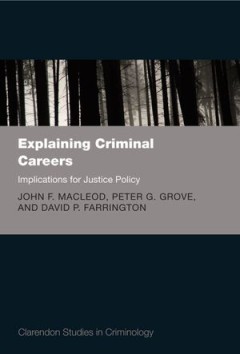
Explaining Criminal Careers: Implications For Justice Policy
Explaining Criminal Careers presents a simple quantitative theory of crime, conviction and reconviction, the assumptions of the theory are derived directly from a detailed analysis of cohort samples drawn from the “UK Home Office” Offenders Index (OI). Mathematical models based on the theory, together with population trends, are used to make: exact quantitative predictions of features of cr…
- Edition
- -
- ISBN/ISSN
- 9780199697243
- Collation
- -
- Series Title
- -
- Call Number
- 364.25
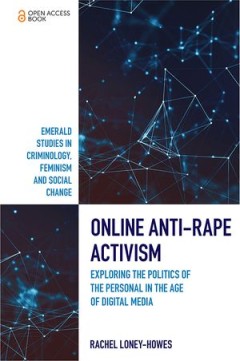
Online Anti-Rape Activism: Exploring the Politics of the Personal in the Age …
Online Anti-Rape Activism examines the nature, use and scope of online spaces for anti-rape activism. Drawing on semi-structured interviews with activists from around the world, survey data from participants in these spaces, and a content analysis of social media pages, weblogs and websites, this book explores the complexities, contradictions, possibilities and politics that underscore the ways…
- Edition
- -
- ISBN/ISSN
- 9781838674403
- Collation
- -
- Series Title
- -
- Call Number
- 302.5 LON o
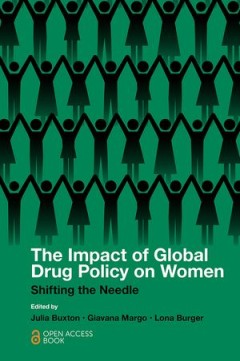
The Impact of Global Drug Policy on Women Shifting the Needle
The international strategy of criminalising the cultivation, manufacture, distribution and use of certain psychoactive substances has failed to achieve a ‘drug free world’. Examining the impact of drug criminalisation and enforcement on a previously overlooked demographic, this edited collection argues that women are negatively and disproportionately affected by this flawed policy approach.
- Edition
- -
- ISBN/ISSN
- 9781839828843
- Collation
- -
- Series Title
- -
- Call Number
- -
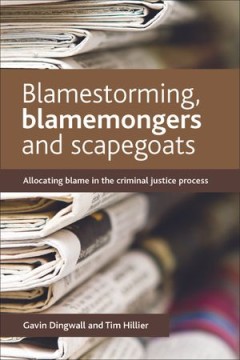
Blamestorming, Blamemongers and Scapegoats : Allocating Blame in the Criminal…
We live in a society that is increasingly preoccupied with allocating blame: when something goes wrong someone must be to blame. Bringing together philosophical, psychological, and sociological accounts of blame, this is the first detailed criminological account of the role of blame in which the authors present a novel study of the legal process of blame attribution, set in the context of crimi…
- Edition
- -
- ISBN/ISSN
- 9781447305002
- Collation
- -
- Series Title
- -
- Call Number
- -
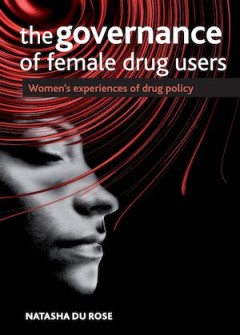
The governance of female drug users Women's experiences of drug policy
Challenging popular misconceptions of female users, this book is the first to examine how female drug user's identities, and hence their experiences, are shaped by drug policies.
- Edition
- -
- ISBN/ISSN
- 9781847426727
- Collation
- -
- Series Title
- -
- Call Number
- -
 Computer Science, Information & General Works
Computer Science, Information & General Works  Philosophy & Psychology
Philosophy & Psychology  Religion
Religion  Social Sciences
Social Sciences  Language
Language  Pure Science
Pure Science  Applied Sciences
Applied Sciences  Art & Recreation
Art & Recreation  Literature
Literature  History & Geography
History & Geography